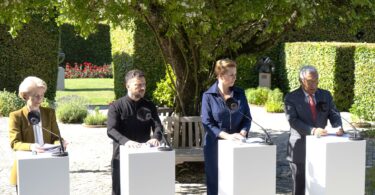Fez, MOROCCO – After a normal day at school on March 20 and an exhausting basketball practice, I came home and took a nap.
When I fell asleep, Morocco had a few cases of covid-19, but things were stable. People were not worried or concerned about the pandemic. I had plans to travel with a friend the next day.
I had no idea what was going to happen.

When I woke up two hours later, I found out that everything had drastically changed. The whole country was on lockdown. Flights stopped, traveling was banned, schools were closed and there was a shortage of food.
I opened my phone, and I found one article after another about Morocco’s sudden action and emails from my teachers about how we were going to start online learning.
Since that day, the covid-19 cases here have increased daily as people struggled to get food, hand sanitizer, and toilet paper. This period of time was complete chaos. People stopped working at their jobs, everyone was stressed and our future plans suddenly became worthless.
The coronavirus became the only topic discussed in every house and within every family.

Usually full of people visiting its markets, shops and cafes that are open day and night, “Bendebab” is now completely empty and calm. (Manar Lezaar/YJI)
People in Morocco did not make the situations worse than it already was by protesting against the sudden changes announced by the government. Instead, they waited for the next instructions and strictly followed the social distancing rules.
We helped each other and relied on each other so everyone could survive this global catastrophe.
Moroccans began to improvise. We started sewing our own masks and helped our neighbors who didn’t have enough food. We created a number – 1919 – where people could donate money by a message on their phones.
We invented our own methods of keeping ourselves protected from the virus, too. We even created our own sanitizer! Yep, we did it.

A eucalyptus tree. People have been taking leaves from these trees and using them as a sanitizer. (Manar Lezaar/YJI)
I have no idea who came up with this idea or who thought of it, or even if it is actually effective or not. Many people, though, believed that boiling eucalyptus leaves and using its steam as a sanitizer to clean the whole house was an effective way to keep it decontaminated and disinfected.
People whacked on eucalyptus trees like a mad storm of birds plucking as many leaves as their bags could hold.
I woke up every day to find my mom moving from one room to the next, holding a small cooking gas cylinder and a container with boiling water and eucalyptus leaves. My dad, on the other hand, forced me to eat garlic every day as a way of keeping myself from getting infected by the virus.
About two weeks ago, a hashtag went viral all over Morocco through social media, galvanizing people for a collective action. It asked Moroccans to go to their rooftops on Friday night at 9, turn their flashlights on, and loudly – alongside their neighbors – ask God to help the whole world defeat this virus and let us get back to our normal lives.
That’s exactly what happened.
One Friday night, me, my mom and my dad all went to the rooftop. We turned on our phones’ flashlights and alongside our neighbors, sang the Moroccan national anthem, and some religious.

The view from the author’s rooftop on the night that everyone went to their windows or rooftops and started singing the Moroccan anthem and religious chants as a sign of cooperation and patience. (Manar Lezaar/YJI)
It was such a magical unforgettable moment, seeing everyone on their rooftops chanting and seeking God’s mercy on our planet and on humanity.
I’ll never forget these times. This virus made us appreciate our normal daily lives, and value cooperation and patience.
Together, we will defeat this calamity.
Manar Lezaar is a Junior Reporter with Youth Journalism International.



